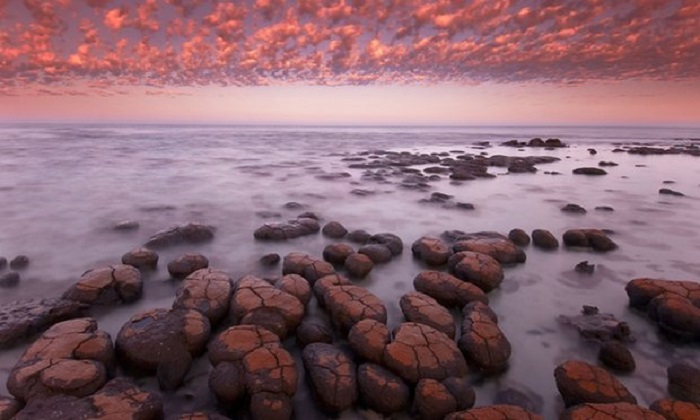Allen Nutman of the University of Wollongong in Australia and colleagues found the formations in ancient rock — itself hard to find because the planet recycles and melts old rock as the surface gets pushed down into the molten mantle over the millennia.
They argue the formations look very much like stromatolites found in Australia. The structures are not the actual remains of bacteria, but are formations made by the one-celled microbes as they form mat-like colonies in the water and pick up sand.
These bacteria would have been living in shallow water, the team argues in the journal Nature.
"The complexity and setting of the Isua stromatolites points to sophistication in life systems at 3.7 billion years ago," they wrote.
The chemistry, sedimentary structures and minerals in the rocks suggest stromatolites were made by living organisms, they said.
Genetic evidence suggests that life should have originated 4 billion years ago. The Earth itself is just 4.5 billion years old, and was bombarded by asteroids and other space debris early on.
Nowadays, stromatolites are rare, but some can be seen in Shark Bay in Australia. And Australia is home to the previous record holder for the oldest fossil on Earth — also a stromatolite structure.
Scientists looking for life on Mars are looking for just these kind of structures. They would have been made by microbes when Mars still was wet and was warmer than it is now.
It might be easier to find them on Mars than it is on Earth. Mars is not geologically as active as Earth is and doesn`t have plate tectonics to melt old surface rock.
More about:
















































